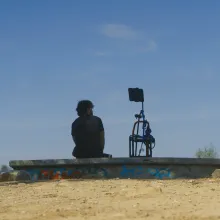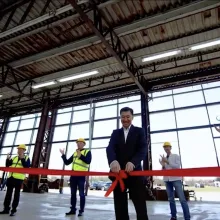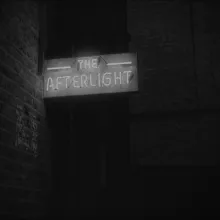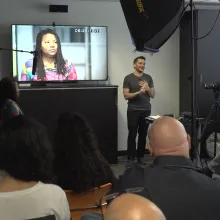When making Deepfaking Sam Altman (2025), documentary director Adam Bhala Lough (Telemarketers) found himself in deep doo doo. Despite months of trying, he still hadn’t gotten access to an interview with Sam Altman (CEO of OpenAI) for a film Lough had promised about AI. So he took a page from Altman’s own MO. The resulting film follows Lough setting about on his journey, working with deepfakers in India, meeting with lawyers, and ultimately spending a lot of time chatting and bonding with the resulting AI chatbot, called SamBot. For this edition of The Synthesis, we spoke with Lough about the film, his use of AI, and its implications for documentary.
Tech Issues
In a recent joint submission to a call for contributions on AI and Creativity at the United Nations Human Rights Council Advisory Committee, WITNESS, the Co-Creation Studio at MIT, and the Archival Producers Alliance (APA) outlined these pressing dangers. Drawing from years of frontline research, workshops, and advocacy with creative communities and human rights defenders around the world, we identified seven core threats AI poses to human creativity.
Sora, a new generative AI video tool from Open AI, is named after the Japanese word for sky. Is the sky the limit? Last year, the company gave early access to 300 artists, some of whom later denounced the company’s product release as artwashing. OpenAI responded with a series of exclusive promotional screenings of artist-made films for industry executives in New York, Los Angeles, and Tokyo. What might this all mean for the documentary field? We decided to run our own experiment. To test the limits of Sora, we prompted it with the taglines from the six most recent Oscar-winning documentaries. We showed the resulting 15-second silent clips to a panel of seven documentary luminaries over Zoom.
Charlie Shackleton describes “The Afterlight” as “a film that’s designed to be lost.” It deliberately exists as a single 35mm print that will naturally degrade over time and with every showing. But recently, the film was lost in a different way than intended. Documentary spoke with Shackleton about the logistics of the accidental loss of the film and its subsequent recovery.

By Steven Beer, Neil Rosini & Julie Angell How can geoblocking impact the video-on-demand marketplace? Geoblocking technology restricts access to

For all the artistry that goes into making a documentary, successful productions always rest on a sound technical foundation. “We talk so much about

Editor’s Note: Welcome to our new column, "Inside Out," in which we ask filmmakers in the field—and in the edit room—What are your essentials tools of

You've no doubt seen these before in a documentary: an interviewee sitting just inches in front of a bookcase, with the individual book titles visible

Animation's history within the realm of documentary is a long and storied one, but to this day its origin is still a matter of contention. Although
Interviews are the backbone of the documentary filmmaking process, and are often the driving force behind a film’s storytelling. But how do you create









